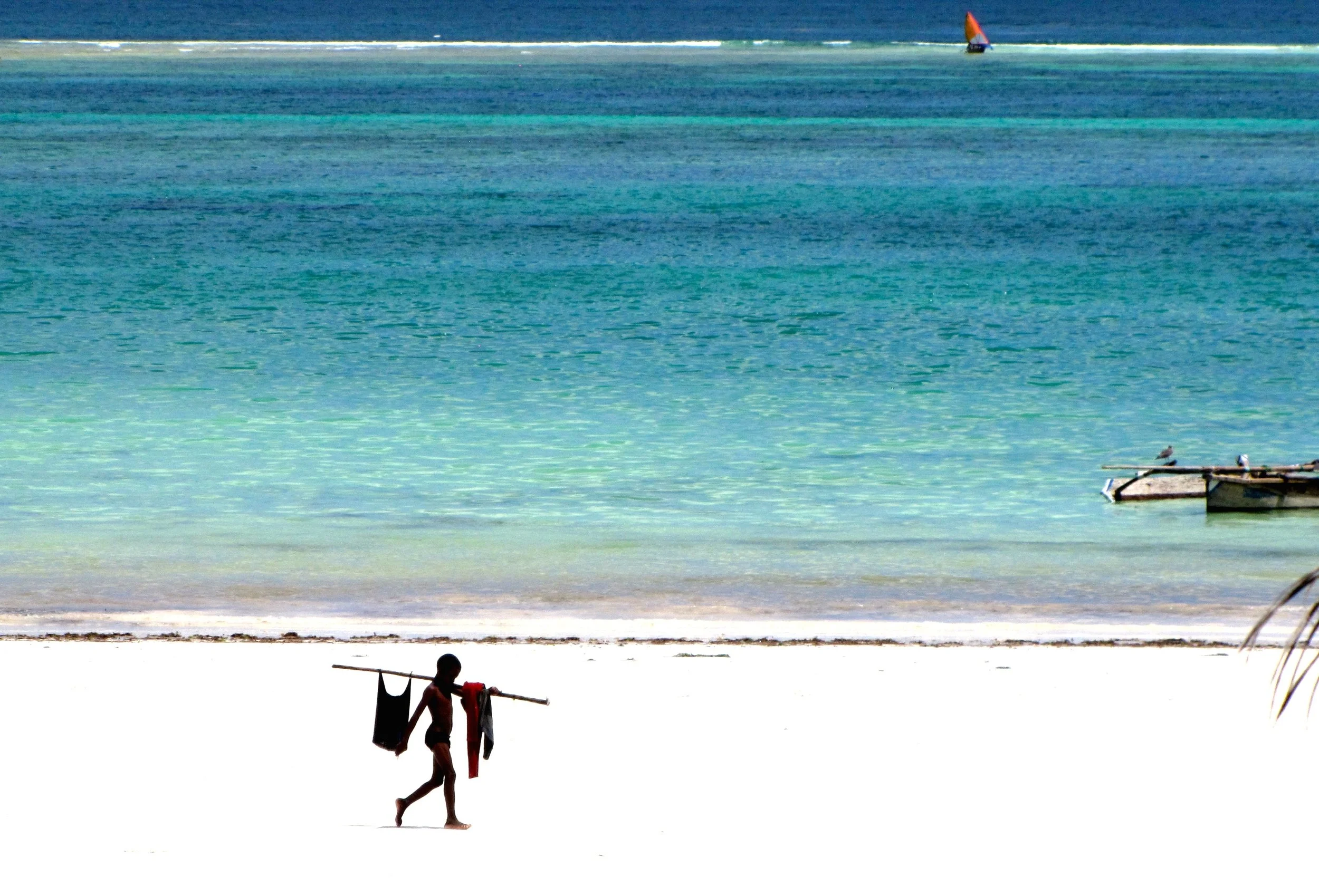
GIVING BACK TO OUR AREA
-

THE DIANI REGATTA
The Diani Regatta, which started in 2012, is the only event on the South Coast of Kenya that showcases the local Digo/Mijikenda traditional culture. Fishermen from along the beach come together to race their ngalawas (canoes with outriggers dug out of giant mango trees). Traditional food and handicrafts are for sale and the income from these goes to women’s groups. Locally grown produce is also available and there are stalls featuring various items of local interest.
As the founder sponsor and patron we have worked closely with the South Coast Community Ecotourism Association (SCCEA) to establish this event which is now a January annual fixture in Diani’s diary. It brings together local people and the tourism sector and is the only event where every section of Diani’s community mingles.
Currently we are working with SCCEA and an archaeologist to locate sites of historical interest along the South Coast which local communities can benefit from. We will update as this project unfolds.
Thanks are due to all the sponsors listed on our Diani Regatta website without whom this event could not happen and also to Raymond Matiba of Safari Beach for the venue and Lindsay Kennaway of Kenyaways and Ras Kikadini for the website itself.
-

FOREST CONSERVATION
We are also passionate about the preservation of the local coral rag forest which is disappearing at an alarming rate. Some years ago we sponsored John Otieno Ndege, a young school teacher with an interest in botany to catalogue the plant species in our 10 acres of indigenous coral rag forest and record the GPS points of all the endangered trees.
We are proud to say that this young man is now an expert and has discovered a previously unknown specimen (below) which is listed in his name in the Missouri Botanical Garden archives. He is currently managing the restoration of the botanical gardens in Zanzibar having been given training in Germany but returns here to the South Coast to collect specimens for various world herbaria.
He wrote us a very touching letter:
“I'm still making some discoveries on the Island, new species in science, a new record for Zanzibar, and a new record for Tanzania at large. Planting native trees species of Zanzibar Island and coastal forest of East Africa at large is in progress.
I will be in Kenya from October to November if all will be well-collecting specimens in the Diani forest, Shimoni forest, and Funzi and Wasini Islands for world herbaria also to substantiate my previous list of aforementioned localities. Your forest will one of my reference points for the collection of the specimen if you will agree with this.
…. thank you so much for accommodating me in my initial stage when I developed an interest in botany. I'm also grateful for the camera that you and Mr. John gave to me also botanic books that I still have to date. I had it not been for you I could have given up in this work. I wish you a safe stay and long life, say hello to Mr. John.”
John Otieno Ndege deserves every congratulation for turning such a small advantage into a giant step up the career ladder and we continue to follow his career with interest.
-
WILDLIFE
Being one of the first businesses in the area, we have seen first hand the changes brought about by development, and have witnessed, along with the benefits of progress and modernity, the pressure on the local flora and fauna as the native habitat has been replaced by roads and buildings. We have tried not to over-develop our own patch and put a lot of work into making our gardens a sanctuary for wildlife. We do not feed animals - we respect them as wild creatures, but are rewarded with frequent visits from monitor lizards, tortoises. squirrels, bush babies and hedgehogs; birds, from ibises and kingfishers to hornbills and lilac breasted rollers, and the troupes of vervet, sykes and colobus monkeys who choose Four Twenty as their home.
-

OUR FOOTPRINT
We try to keep our footprint light…
We source fish from the fishermen at the landing site next door.
Fruit & vegetables are delivered by local farmers on bicycles.
Hand soaps are bought from a local project in the Shimba Hills.
Body wash, shampoo and conditioner comes from Cinnabar Green, an environmentally responsible Kenyan cosmetics company which grows the herbs and makes the essential oils used in its products.
We use wooden buckets, spades and beach toys from Hai Kenya.
Drinking water comes from collecting the humidity from the air and from our own well through a reverse-osmosis process.
All fruit and vegetable waste is composted.
Bottles, plastic, paper and metal are sent for recycling.
Seafood shells and bones are returned to the ocean at night for the fish and crabs to feast on.
No plastic bottles are used.
We use bamboo straws.
Rainwater is collected for use on the garden.
We use eco-briquettes for barbecues.
Dzumbe House hot water is heated by solar energy.
-
HOW YOU CAN HELP
Promote responsible tourism in Diani Beach and book with us or similar accommodation providers.
Visit some local conservation efforts and charities. We can recommend some sustainable and legitimate organisations such as:
The South Coast Community Ecotourism Association
The Colobus Trust
The Marine Centre and Diani Turtle Watch at the Sands, Nomads
Diani Regatta 2023















